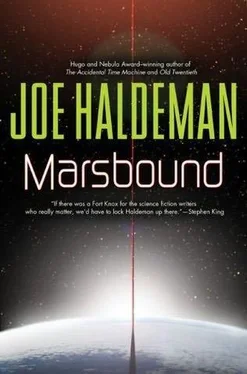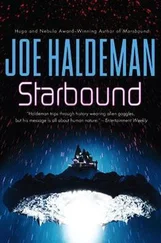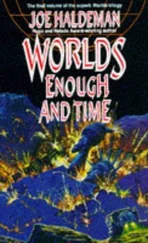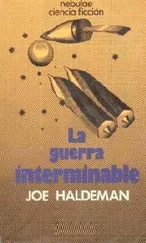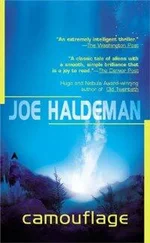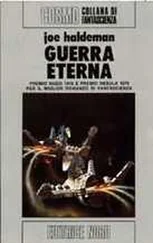The butterfly counts not months but moments, and has time enough.
—Rabindranath Tagore
For Carmen and Catalin,
our alien invaders
Many thanks to Geoff Landis, my favorite Martian, for advice in science and math. Any inaccuracies, of course, were committed by the author alone.
It wasn’t a lot of luggage for six years; for the longest journey anyone has ever taken. We each had an overnight bag and a small titanium suitcase.
We stepped out into the warm Florida night and carried our bags to the curb. I looked back at the house and didn’t feel much. We’d only lived there two years and wouldn’t be coming back. I’d be twenty-five then, and getting my own place anyhow.
Dad pointed out Jupiter and Mars, both near the horizon.
The cab hummed around the corner and stopped in front of us. “Are you the Dula party?” it said.
“No, we’re just out for a walk,” Dad said. Mother gave him a look. “Of course we are. It’s three in the goddamned morning.”
“Your voice does not match the caller’s,” the cab said. “After midnight I need positive identification.”
“I called,” my mother said. “Do you recognize this voice?”
“Please show me a debit card.” A tray slid out and Dad flipped a card onto it. “Voice and card.”
The doors opened silently. “Do you require help with your luggage?”
“Stay put,” Dad said, instead of no. He’s always testing them.
“No,” Mother said. The luggage handler stayed where it was, and we put our small bags in the back, next to where it crouched. Its eyes followed us.
We got in, Mother and me facing Dad and Card, who was barely awake. “Verify destination,” it said. “Where are you going, please?”
“Mars,” Dad said.
“I don’t understand that.”
Mother sighed. “The airport. Terminal B.”
“The undead,” Card said in his zombie voice.
“What are you mumbling about?”
“This thing you humans call a cab.” His eyes were closed and his lips barely moved. “It does not live, but it is not dead. It speaks.”
“Go back to sleep, Card. I’ll wake you up when we get to Mars.”
Locked up in a spaceship with my little brother for six months. Plus parents and a couple of dozen strangers. We were lucky, though; six months was about the shortest possible flight. It can take more than a year when Mars is farther away.
When we come back, he’ll be almost as old as I am now. That’s only a little less strange than zombies.
It’s the only elevator in the world with barf bags. My brother pointed that out. He notices things like that; I noticed the bathroom. One bathroom, for thirty-six people. Locked in an elevator for two weeks. It’s not as big as it looks in the advertisements.
You don’t call it “the elevator” once you’re in it; the thing you ride in is just the climber. The Space Elevator, always capitalized, is two of these climbers plus fifty thousand miles of cable that rises straight up into space. At the other end is the spaceship that will take my family to Mars. That one will have two bathrooms (for twenty-six people) but no barf bags, presumably. If you’re not used to zero gee by then, maybe they’ll leave you behind.
This whole thing started two years ago, when I was young and stupid, or at least sixteen and naive. My mother wanted to get into the lottery for the Mars Project, and Dad was okay with the idea. My brother Card thought it was wonderful, and I’ll admit I thought it was spec, too, at the time. So Card and I got to spend a year of Saturday mornings training to take the test—just us; there was no test for parents. Adults make it or they don’t, depending on education and social adaptability. Our parents have enough education for any four people but otherwise are crushingly normal.
These tests were basically to make us , Card and me, seem normal, or at least normal enough not to go detroit locked up in a sardine can with twenty-four other people for six months.
So here’s the billion-dollar question: Did any of the kids aboard pass the tests just because they actually were normal? Or did all of them also give up a year of Saturdays so they could learn how to hide their homicidal tendencies from the testers? “Remember, we don’t say anything about having sex with little Fido.”
We flew into Puerto Villamil, a little town on a little island in the Galápagos chain, off the coast of South America. They picked it because it’s on the equator and doesn’t get a lot of lightning, which could give you pause if you were sitting at the bottom of a lightning rod long enough to go around the Earth twice.
The town is kind of a tourist trap for the Space Elevator and the Galápagos in general. People take a ferry out to watch it take off and return, and then go to other islands for skin diving or to gawk at exotic animals. The islands have lots of bizarre birds and lizards. Dad said we could spend a week or two exploring when we came back.
If we came back, he didn’t say. It’s not like we were just moving across town.
Mother and Dad both speak Spanish, so they chatted with the taxi driver who took us from the airport to the hotel where we would get a night’s rest before ferrying out to the elevator platform. The taxi was different, an electric jeep long enough to seat a dozen people, with no windshield and a canvas sun canopy rather than a roof. I asked what happens if it rains, and the driver summoned up enough English to say, “Get wet.”
Card and I had a separate room, so Mom and Dad could have one last night of privacy. I hoped they were taking precautions. Six months of zero-gravity morning sickness? I wondered what they would name the baby who caused that. “Clean up your room, Barf.” “No, you can’t have the car, Spew.”
(After all, they named Card Card and me Carmen, after an opera that I can’t stand. “Tor-e-ador, don’t spit on the floor. Use the cuspidor; that’s what it is for.”)
We dumped our bags and went for a walk, Card one way and me the other. He went into town, so I headed for the beach. (The parentiosas might have assumed we were going to stay together, but they didn’t give us any specific orders except to be back at the hotel by seven, for dinner.)
My last day on Earth. I should do something special.
The beach was less sand than rock, a jagged kind of black lava. The water swirled and splashed among the rocks and didn’t look too great for wading, so I sat on a more or less smooth rock and enjoyed the sun and salt air. Real Earth air, breathe it while you can.
There was a big gray iguana on a rock, maybe ten yards away, who ignored me. He didn’t look real.
With the noise of the surf on the rocks I didn’t hear the man come up behind me. “Carmen Dula?”
I jerked around, startled. He was a strange-looking older guy, maybe thirty, his skin white as chalk. With a closer look I saw it wasn’t his skin; it really was something chalky, some kind of absolute sunblock. He was dressed in white, too, long pants and long sleeves, and a broad-brimmed hat. Kind of good-looking aside from the clothes.
“Didn’t mean to startle you.” He offered his hand, dry and strong under the chalk. “I’m Paul Collins, your pilot. Recognized you from the passenger roster.”
Читать дальше
